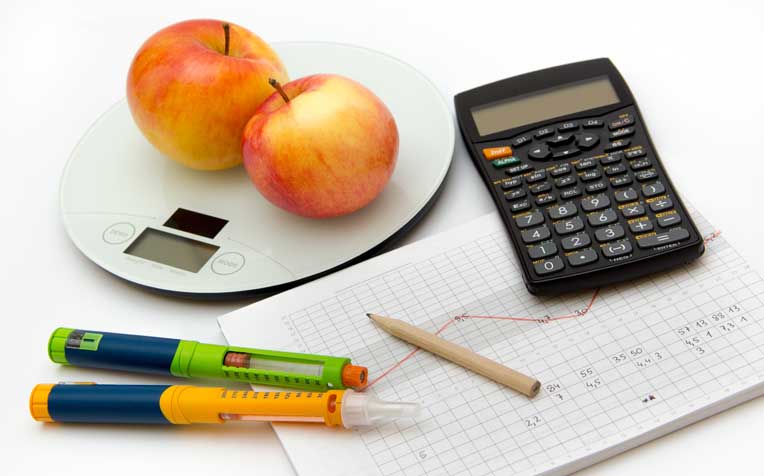
Carbohydrate counting is the most widely used method of meal planning used today.
Step 2: Keep track of carbohydrate intake
Knowing your individualised requirements for daily caloric intake, including carbohydrate portions is important when you have diabetes. There are a few different approaches and methods to planning a diabetes eating plan to help you keep your blood glucose levels within the normal range.
“Your dietitian will help you find a method that best works for you, paying special attention to serving size. Using household measures is one approach for carbohydrate estimation,” says Ms Kala Adaikan, Senior Principal Dietitian, at the Department of Dietetics, Singapore General Hospital (SGH), a member of the SingHealth group.
Carbohydrate counting
Carbohydrate counting is the most widely used method of meal planning used today. It is based on the principle that all types of carbohydrates are digested, with the majority being absorbed into the blood stream as molecules of glucose.
There are 2 main types of carbohydrate counting:
- Basic carbohydrate counting involves following a meal plan with consistent carbohydrate distribution throughout the day. The even distribution of your carbohydrate intake allows for stable blood glucose levels. Carbohydrate exchanges/portions will be available to you to provide for a flexible meal plan.
- Advanced carbohydrate counting (adjusting insulin for carbohydrate intake) is a system that may be used in individuals with type 1 diabetes or type 2 diabetes (who are on basal and bolus insulin regimens). This allows for an individual to adjust mealtime insulin boluses for variable amounts of carbohydrate eaten at each meal. Accurate carbohydrate counting is essential for accurate insulin dosing.
The method that will best suit you will depend on:
- The type of diabetes you have
- The type of medications you may be on for your diabetes treatment
A dietitian can calculate your individualised requirements and teach you carbohydrate counting techniques for more food choices in your diet. If you are on insulin, he or she can teach you how to count carbohydrates at each meal or snack and adjust your insulin dose accordingly.
Learn about glycaemic index (GI) here.
Ref: O17
Contributed by
Related Articles
Conditions & Treatments
Public Events
Get the Health Buddy App
© 2025 SingHealth Group. All Rights Reserved.


















 Get it on Google Play
Get it on Google Play